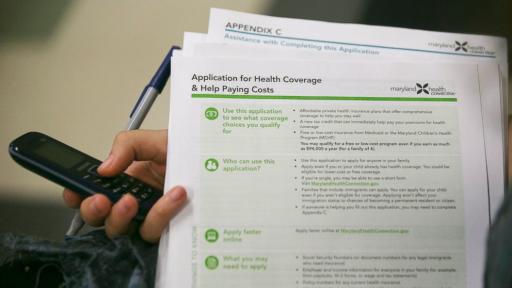Obamacare: Truth and Myths
By ABBY D. PHILLIP | Good Morning America
 These days, it can be hard to separate truth from myth when it comes to the Affordable Care Act.
Opponents of the law have sought to discredit it by repeating
statements that aren't backed by facts, while its proponents do their
own stretching of the truth.
These days, it can be hard to separate truth from myth when it comes to the Affordable Care Act.
Opponents of the law have sought to discredit it by repeating
statements that aren't backed by facts, while its proponents do their
own stretching of the truth.
Here, we demystify some of the most vexing questions surrounding the new health care law:
Myth: People are having difficulty signing up for health care everywhere.
It's been all over the news since the Affordable Care Act's marketplaces opened for business on Oct 1: delays, broken web pages and glitches galore. While there have been enormous difficulties for the ACA's health insurance exchanges, the problems have been largely confined to the 34 state marketplaces that the federal government runs. In 16 other states and the District of Columbia, the state-run exchanges seem to be working fine.
It's been all over the news since the Affordable Care Act's marketplaces opened for business on Oct 1: delays, broken web pages and glitches galore. While there have been enormous difficulties for the ACA's health insurance exchanges, the problems have been largely confined to the 34 state marketplaces that the federal government runs. In 16 other states and the District of Columbia, the state-run exchanges seem to be working fine.
Some of them are actually doing pretty well -- at least when compared with the others. Kentucky has already enrolled 15,000 people in health insurance plans with few problems. And within two weeks, California said that 95,000 people had started applications for insurance.
Public Splits on Health Care Law Amid Concern About Website Flaws
Myth: The website's' biggest problem is the number of people seeking insurance.
At least initially, the White House tried to paint Obamacare's severe technical problems as a victim of its success. "We found out that there have been times this morning where the site has been running more slowly than it normally will," Obama said hours after the exchanges opened their doors. "The reason is because more than 1 million people visited healthcare.gov before 7 in the morning."
It turns out that wasn't quite the case. The Wall Street Journal reported that insurers said the website had been giving them faulty data weeks after the initial launch.
And the Washington Post reported
that the site began experiencing its first problems after only 2,000
people tried to complete the first step of their applications shortly
after midnight on Oct. 1.
At least initially, the White House tried to paint Obamacare's severe technical problems as a victim of its success. "We found out that there have been times this morning where the site has been running more slowly than it normally will," Obama said hours after the exchanges opened their doors. "The reason is because more than 1 million people visited healthcare.gov before 7 in the morning."
Three weeks later, the problems have persisted, so much so that the White House now said it has called in an emergency tech squad to help it fix the site before the end of the year so that people who need insurance can get it before Jan. 1.
Obamacare Sites Still Swamped but Wait Times Cut
Myth: Obamacare is leading to part-time jobs
It's a common refrain of its opponents: Obamacare will force struggling Americans into part-time work. Well, the first bits of evidence have come in, and it does not look as if the Affordable Care Act has had any negative impact on full-time work.
Between August and September the economy has added 691,000 full-time jobs, while it has lost 594,000 part-time jobs, according to the September jobs report. While this is only one month's worth of data, it indicates that at least so far, the law hasn't pushed full-time employees into part-time work.
Myth: Employers aren't changing the insurance they offer because of Obamacare.
"If you like your health care plan, you can keep your health care plan," said President Obama in 2009 as he worked to sell the health care bill that would result in the Affordable Care Act. For many Americans, fall means open enrollment season for their employee-based health care plans. And some of those plans have definitely changed.
"If you like your health care plan, you can keep your health care plan," said President Obama in 2009 as he worked to sell the health care bill that would result in the Affordable Care Act. For many Americans, fall means open enrollment season for their employee-based health care plans. And some of those plans have definitely changed.
Here are some high profile examples: Citing the Affordable Care Act, UPS
announced it would drop health coverage for some spouses of employees
who were eligible for health insurance elsewhere. And Home Depot said it would shift its part-time employees to public health insurance exchanges instead of providing insurance through the company.
The truth is, some health insurance plans would be required to change
because of the Affordable Care Act: Either they don't meet the minimum
coverage requirements of the new law, or they are too generous -- so
called "Cadillac" insurance plans.
But not all changes stem from the new law. Employers have been changing health insurance plans for years before the ACA. For example, the average deductible has increased every year since 2006 -- before and after the health care law -- according to the Kaiser Family Foundation.

No comments:
Post a Comment